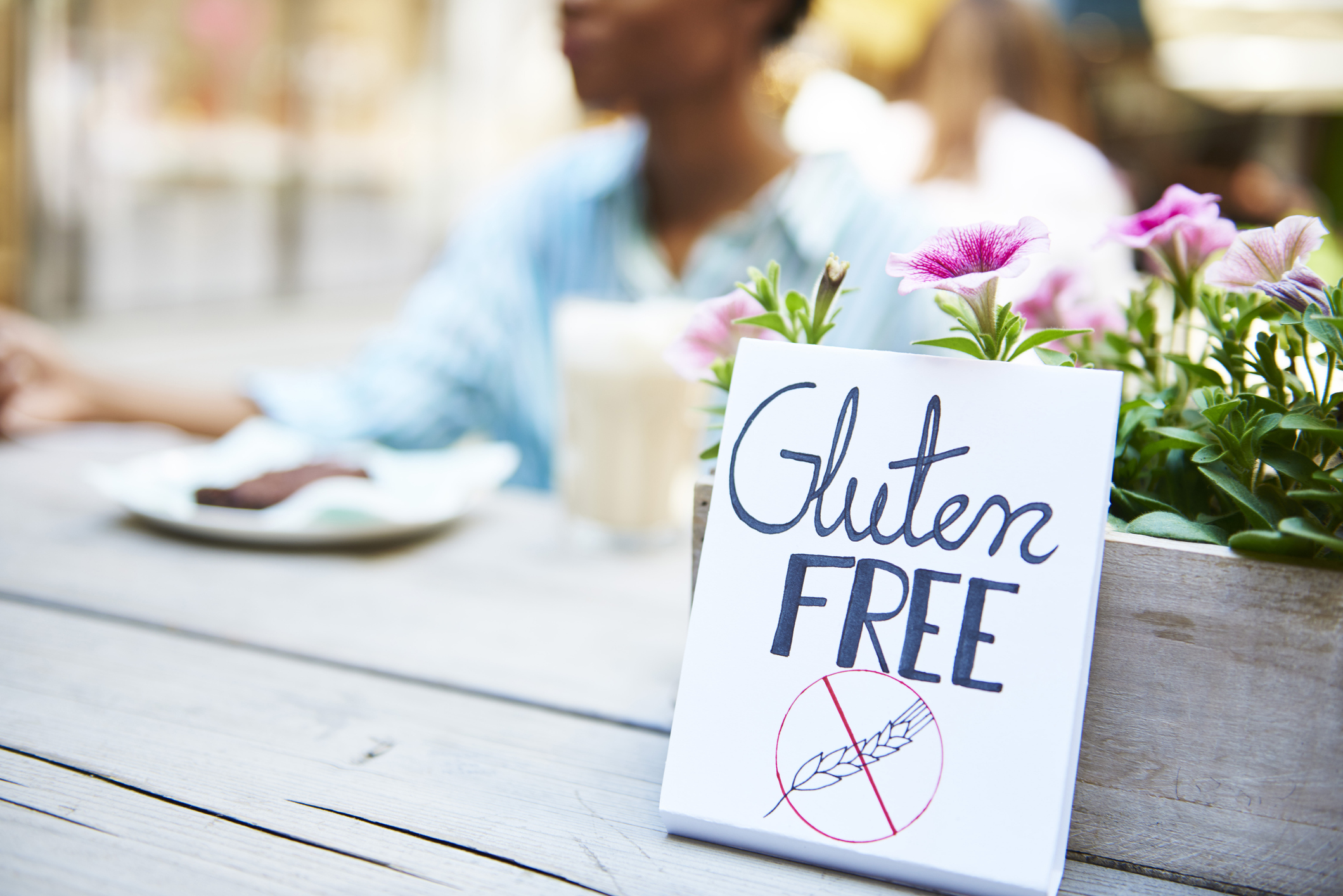Is gluten-free healthy?
Thinking of cutting grains from your diet? Find out is gluten-free healthy in the first place

Gluten-free diets have become increasingly popular over the last few years—so much so that even the best meal prep delivery services have started to offer gluten-free options.
The popularity of a gluten-free diet has also led to more gluten-free products in grocery stores and gluten-free meals on restaurant menus. This acceptance of grain-free alternatives is obviously excellent for those dealing with celiac disease or a wheat allergy. But for everyone else looking to change up their diet, is gluten-free healthy? Let's find out!
- Vegan for beginners: the unofficial guide to being a vegan
What is gluten, and why is it problematic for some?
It seems these days that more and more stores are providing gluten-free items, but you may not be aware of what gluten actually is and which food items have it. Many are also choosing a gluten-free diet without really understanding what it means to be truly gluten-free, or that some people suffer from gluten-caused health issues.
According to the Cleveland Clinic, gluten is "a protein found in wheat, rye, barley and countless processed foods including pasta, breads, and cereals." Even some beverages, such as beer and malt-based drinks, and condiments, like soy sauce, surprisingly contain gluten. Even some toothpastes contain the stuff!
For someone who has celiac disease, gluten is very harmful. As reported by the Celiac Disease Foundation: "When people with celiac disease eat gluten (a protein found in wheat, rye and barley), their body mounts an immune response that attacks the small intestine. These attacks lead to damage on the villi, small fingerlike projections that line the small intestine, that promote nutrient absorption. When the villi get damaged, nutrients cannot be absorbed properly into the body."
Damage to the small intestine lining can cause other health issues, such as diarrhea, fatigue, weight loss and anemia, as well as serious complications including infertility, seizures, and more. Not to fear, though! Genetic and environmental factors can cause celiac disease, but it only affects one percent of the world's population.
However, if you know for sure that you don't have celiac disease but still feel like something is off, it could be one of two other issues caused by gluten: A wheat allergy or non-celiac gluten sensitivity. Wheat allergies are more present in children than adults. Symptoms can range from nausea and hives to anaphylaxis or difficulty breathing, reports the American College of Allergy, Asthma & Immunology.
The next health issue of gluten intolerance is non-celiac gluten sensitivity. According to the Beyond Celiac organization, this sensitivity manifests when someone exhibits a "prevalence of extraintestinal or non-GI symptoms, such as headache, 'foggy mind,' joint pain, and numbness in the legs, arms or fingers" after eating gluten. This person does not have an actual allergy or celiac disease, but a doctor should rule out both to be sure. Celiac disease testing is done through a blood test, and an allergy test can be conducted for a wheat allergy.
- What is intuitive eating —and could it help you ditch the diet mentality?

Is gluten-free healthy for everyone else?
Suppose you test negative for celiac disease and a wheat allergy, but still show non-celiac gluten sensitivity symptoms. In that case, it certainly doesn't hurt to give a gluten-free diet a go.
However, while a gluten-free diet is not necessarily unhealthy and will not cause any health issues, most feel better on a gluten-free diet simply because they eliminate highly processed foods from their everyday eating. By not eating packaged products or fast foods, folks lose weight, feel more energized, and see an improvement in mood. So, it can be unclear if gluten was the issue in the first place, or if it may just have more to do with following a more natural, whole food-based diet.
If you decide to head down the gluten-free path, stay away from gluten-free processed foods, like snacks, says the Mayo Clinic. On paper, these options may seem healthier because they are gluten-free, but they can actually contain the same amount of fat, sugar, and salt as their gluten counterparts.
Also, by going gluten-free, you could be reducing your fiber intake. It's necessary to have a well-balanced diet and include naturally gluten-free foods like fruits, vegetables, and lean meats in your everyday meals. But particular breads and cereals are fortified with various vitamins, which gluten-free options will not provide. However, you can take a gluten-free supplement to make up for the vitamins and nutrients you would typically receive from specific bread and cereals.
It is still unclear whether a gluten-free diet is truly beneficial for those who do not have celiac disease or a wheat allergy. However, as long as a gluten-free diet is done correctly and includes other natural foods, it can be a safe, healthy choice. If you still feel unsure whether or not gluten affects you, you could try to eliminate products containing gluten from your diet for a bit to see if symptoms improve. Before making any drastic changes to your diet, however, it is always best to consult your doctor first and explore all options.
The My Imperfect Life team is all about helping you navigate your world. We bring you the latest on fashion, beauty, travel and wellness so you can live life on your terms.